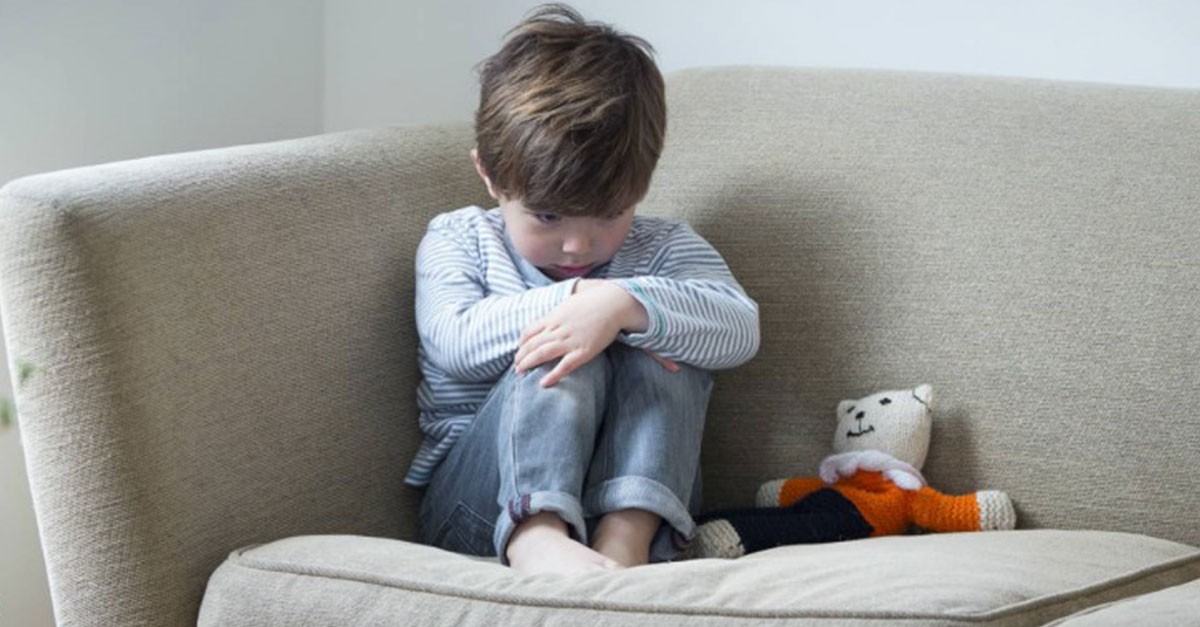Since the start of the pandemic, mental health illnesses including anxiety have increased in children as young as 18 months old, while more teenagers have acquired depression and suicidal ideation, according to experts.
In a groundbreaking survey of 1016 psychologists conducted by the Australian Psychological Society, 36% of 875 participants said they had seen an increase in children under the age of five presenting with separation anxiety disorder over the previous two years.
Over 25% of psychologists reported seeing an increase in the neurodevelopmental disorder ADHD in preschoolers over the previous two years, and 26% reported an increase in generalised anxiety disorder.
Among 13- to 18-year-olds, 65 per cent of the 776 psychologists who responded saw an increase in depression, 60 per cent saw an increase in anxiety and half saw an increase in suicidal ideation or self-harm.
Psychologists also saw an increase in mental health issues and neurodevelopmental disorders among children aged six to 12 years, with 45 per cent seeing an increase in social anxiety disorder and 42 per cent seeing an increase in ADHD.
The society’s president Dr Catriona Davis-McCabe said the rise in mental health issues among children over the past two years could be attributed to the psychological effects of the pandemic, as well as the stress of multiple natural disasters, and economic and global uncertainty.
“While for many adults the pandemic is becoming a distant memory, its effects continue to devastate children across the country,” she said.
She said unaddressed psychological distress could have a significant impact on children in the short and long term and that a coordinated and sustained effort was needed to avert a mental health crisis among children.
Harriet Hiscock, a pediatrician and professor at Murdoch Children’s Research Institute, said there was a pre-existing, long-term trend of a rise in mental health issues and disorders among children, but the pandemic had exacerbated it.
She said an analysis of emergency hospital presentations of children from 2008 to 2015 showed mental health presentations increased at three times the rate of physical health ones.
Hiscock said there was currently no regular state, territory or national surveys on children’s mental health. Her institution is pushing for this data to be regularly collected, which she said could occur alongside the NAPLAN tests, an annual literacy and numeracy assessment of students in years 3, 5, 7 and 9.
It is a significant knowledge gap. She said they had seen a rise in children presenting with various types of anxiety related to Autism and ADHD, often resulting in children refusing to go to school.
Diagnosing an 18-month-old was “tricky”, she said. Non-verbal toddlers are usually monitored in kindergarten and at home by multiple professionals.
A 2020 Queensland report into the impacts of COVID-19 on children found one in four experienced “higher than average” levels of anxiety and up to 12 per cent of those who went through a second lockdown experienced “very high” rates of mental health difficulties.
According to the Australian Bureau of Statistics survey of disability, ageing and carers, there has been an increasing trend of autism over time, from 0.3 per cent in 2009 to 0.5 per cent in 2012 and 0.7 per cent in 2015.
According to Mullan, the causes of the rise in neurodevelopmental problems have not been thoroughly studied or understood. He said general awareness had increased and there had been more acceptance across communities, “frankly we have a better-informed population than we ever have in history”.
In order to help preschools and kindergartens identify early indicators of mental health concerns and illnesses in children, Mullan suggested that staff members be upskilled and professionals hired.
"The greater the outcomes you'll begin to see in kinder, school, general education, and employment," he added. "The sooner that everyone in a child's network can have the opportunity to support that child, the better."
“When the issues the kids are presenting with are too complex for management in the school’s system, and we can’t get them into the public health system, where do these young people go?” she asked.
Hiscock said the Murdoch Institute was trying to tackle psychologist shortages through a program that upskills healthcare professionals such as doctors and social workers with strategies from a child psychiatrist.
“It’s an attempt to meet the needs because we don’t have enough psychologists,” she said. “I think we need to talk about solutions, not just problems.”
A spokesperson for the federal Department of Education said it had committed $203.7 million to the Student Wellbeing Boost, which helps students counter the impact of the pandemic on mental health.
Reference:
Mental Health Disorders Increase Among Preschoolers And Teens, Nicole Perell, The Sydney Morning Herald, December 2, 2022







